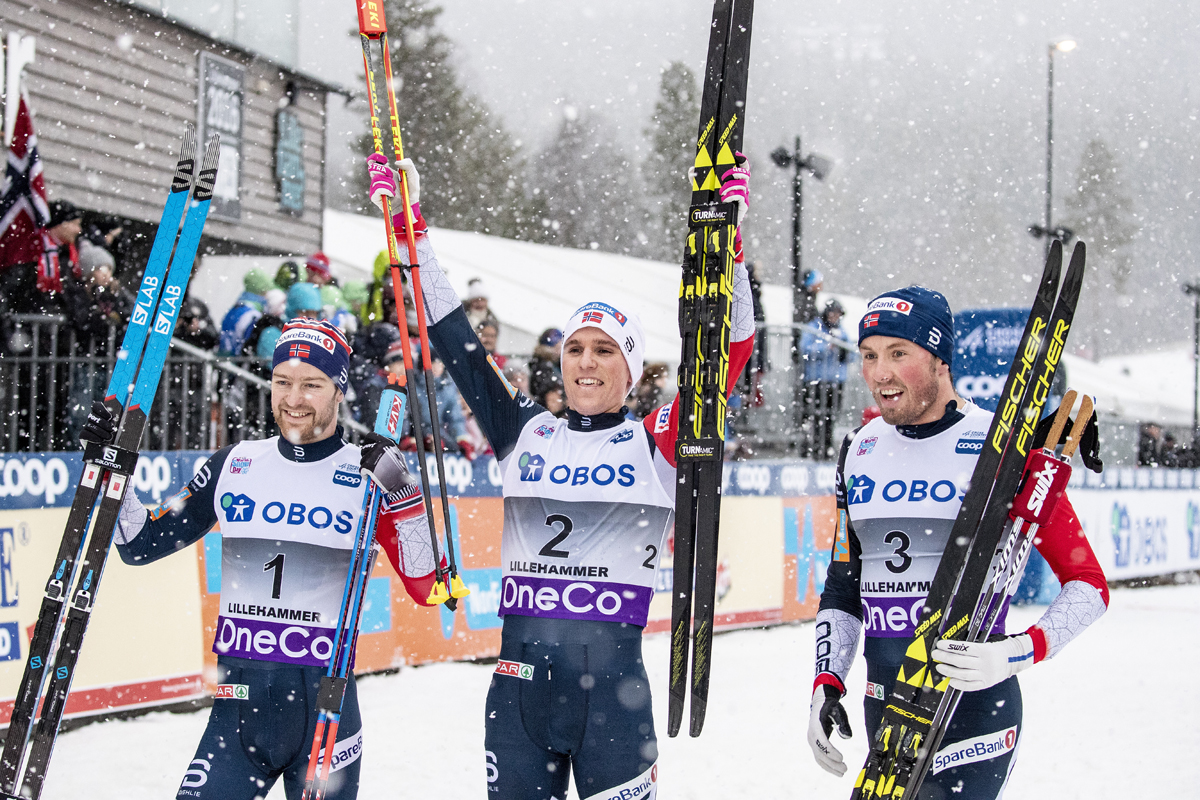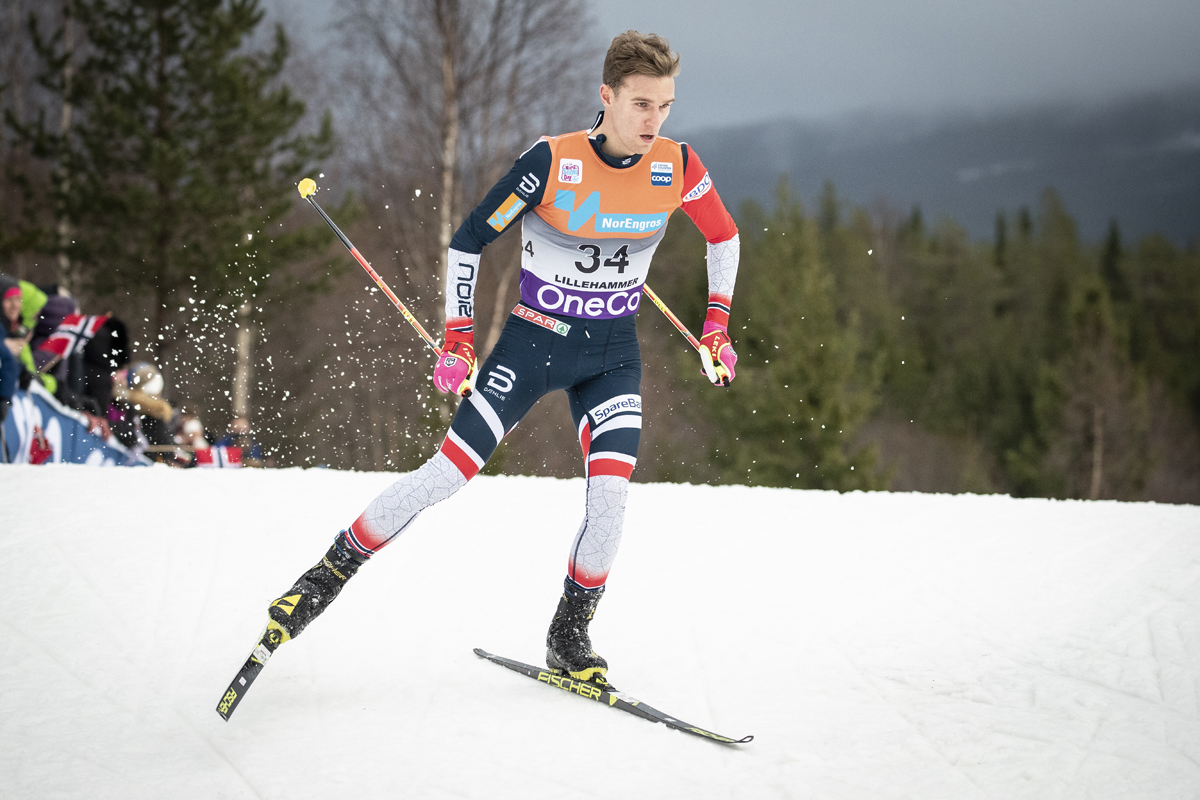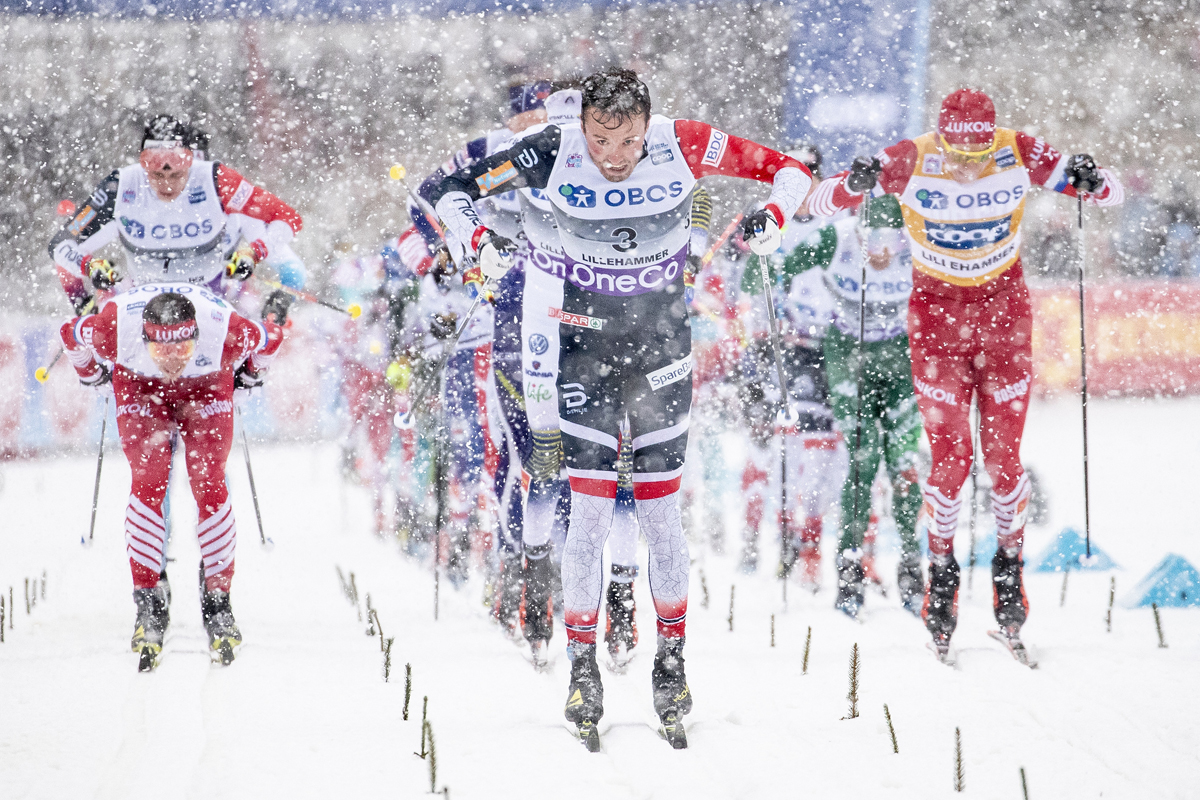
In sport, there’s the win and then there’s the story behind the win. In the sport of nordic skiing, some of these stories seem all too familiar, such as Sunday’s Norwegian victory in the men’s 15-kilometer classic pursuit.
But even among the Norwegians in the sport of cross-country skiing, there are idiosyncrasies to the success.
In the case of Didrik Tønseth, the Norwegian winner of Sunday’s 15 k pursuit in Lillehammer, Norway, the victory was a long awaited recognition. Back in 2014, while competing in the Davos, Switzerland 15 k classic pursuit in early December, Tønseth crossed the finish line after Norwegian Martin Johnsrud Sundby for second place.
Two years later, Sundby was stripped of the Davos 15 k win, as well as his 2015 Tour de Ski and 2014/2015 overall World Cup titles, due to a doping violation. Sundby had been found to have twice exceeded the amount of salbutamol, also known as albuterol, which Sundby indicated he used for asthma.
The doping allegations and Sundby were under the spotlight. Few media outlets focused on Tønseth, the fact that he became the new race winner of the Davos 15 k, and that it was his first individual World Cup victory. He would have to wait until this December before another individual World Cup win would come his way for a toast to his individual victories.
Tønseth now has two individual World Cup wins–the Davos 15 k from 2014 and this Sunday’s Lillehammer pursuit.
“It feels incredibly good. It’s fascinating that I succeeded so,” Didrik Tønseth told NRK according to a Norwegian translation, also confirming to NRK that it was his greatest day as a cross-country skier.
“It actually means everything,” the 27 year old added.

Tønseth’s win this Sunday came in a time of 44:13.8 minutes. He earned the pursuit’s second start position, thanks to a second place finish in Saturday’s 15 k freestyle race. He was also, reportedly, the only Norwegian to race on zeroes on Sunday.
“Tønseth was on zeroes,” U.S. World Cup head coach, Matt Whitcomb, said during a phone conversation on Sunday. “He was the only Norwegian that I know of that was on zeroes.”
Still, Tønseth hardly skied alone during the pursuit. He and Norwegian Sjur Røthe started within one second of each other and the two continued to set the pace for the remainder of the race. Just before the third lap the day’s snowfall picked up drastically. Røthe and Tønseth, however, remained untouchable by the chase group, which was a little over a minute behind at the 8.3 k mark.
In the final double pole showdown to the finish line, Tønseth bested Røthe by 1.6 seconds to take the win. Snagging the final podium spot by 1.1 seconds ahead of Sweden’s Calle Halfvarrson was Emil Iverson in third (+1:03.3). Halfvarrson took fourth (+1:04.4) and one tenth of a second behind the Swede was Russia’s Alexander Bolshunov in fifth (+1:04.5).
Rounding out the top ten was Russian Andrey Larkov in sixth (+1:05.0), Finland’s Iivo Niskanen in seventh (+1:05.2), Norwegian Simen Hegstad Krüger in eighth (+1:05.3), Sweden’s U23 skier Viktor Thorn in ninth (+1:05.5) and Dario Cologna of Switzerland in tenth (+1:05.8).
Leading the North Americans was Canada’s Alex Harvey in 16th (+1:08.7). Harvey started the pursuit in bib number 10, sandwiched by Great Britain’s Andrew Musgrave starting in bib nine and Norway’s Hans Christer Holund in bib 11. After chasing down and catching up to Sundby and Cologna, Harvey remained in the main chase pack through all three course laps.
“[The first lap was the hardest, I had to close a decent gap, up to Dario [Cologna] and Sundby,” Harvey told Faskier during an in-person interview after the race. “They were closing on [Denis] Spitsov and these guys, so the first lap was the hardest for me, second was super easy, and first half of the third lap was also really easy.
“I think I actually had really good skis and [my] body was feeling okay, just missing some punch at the end,” Harvey continued. “Given the shape that I have right now for distance, it’s the best I can do.”

Finishing 7.9 seconds outside the top 30 in 32nd (+1:26.1), was U.S. Ski Team (USST) B-team member, Erik Bjornsen. Bjornsen ended the day with the third fastest course time.
“I was able to ski up into the top 30 but then the last lap with all this new snow, [I] just couldn’t get the skis to kick,” Bjornsen, who started in bib 43, told Fasterskier after the race. “You had to be relaxed with the kick and patient. As soon as I [started] getting tired it made it more difficult to be able to find the kick. Super tricky conditions.”
Whitcomb explained that the result is a positive indication of Bjornsen’s direction this season.
“Erik was able to ski from bib 40 up to bib 32 today, and [he was] in contact with 25 after the second lap, so 10 k through,” Whitcomb said. “He was looking much more like himself, not completely where he wants to be in terms of his race feeling yet, but it was a step in the right direction today. I think this will give him some confidence as we move forward to a big training week in Beitostølen.”
“The main thing that will power these guys into the points, and for some, the podium, is confidence,” Whitcomb added later via text. “Small improvements each week lead to increasingly confident athletes. it’s generally only the confident athletes that will do well. That’s why an athlete that starts to roll tends to keep rolling.”
Following Bjornsen, American David Norris (APU) skied to 52nd (+3:21.9), Kevin Bolger (USST) 59th (+4:20.8), Adam Martin (CGRP) 62nd (+4:35.7), Scott Patterson (USST) 63rd (+4:39.0), Simi Hamilton 66th (+4:44.1).
“We’re a bit thinner on the men’s side with regards to the distance depth and so when when they’re not on race form it really shows up,” Whitcomb said. “As soon as things start to open up and these athletes come out from under this blanket of fatigue, from fall travel, training, getting over here and adjusting to snow, things… results can start to open up much more quickly for us come December.”
For Canada, Russell Kennedy (Team R.A.D.) was 61st (+4:32.4), and Andy Shields 71st (+6:06.7)
World Cup cross-country athletes’ next stop is Beitostølen, Norway for the 15/30 k distance events and a relay.
Gabby Naranja
Gabby Naranja considers herself a true Mainer, having grown up in the northern most part of the state playing hockey and roofing houses with her five brothers. She graduated from Bates College where she ran cross-country, track, and nordic skied. She spent this past winter in Europe and is currently in Montana enjoying all that the U.S. northwest has to offer.



